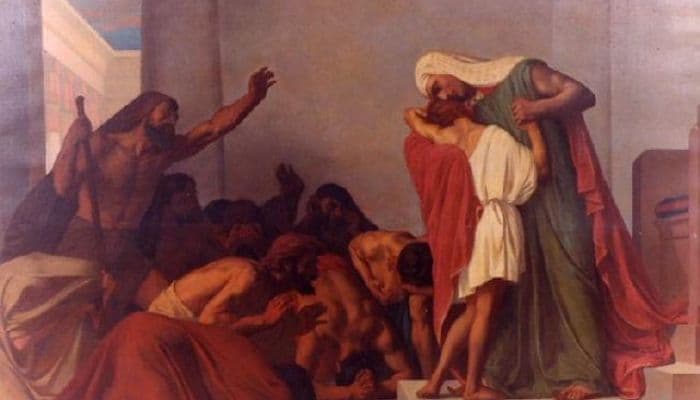Judah approaches Joseph, pleading for Benjamin’s release and offering himself as a slave to the Egyptian ruler in Benjamin’s place. Joseph exposes his identity to his brothers after observing their loyalty to one another. “My name is Joseph,” he declares. “Does my father still exist?”
Shame and remorse overwhelm the brothers, but Joseph consoles them. “It was God who sent me here, not you,” he tells them. It was all predestined by God to save us and the entire region from starvation.”
The brothers run back to Canaan with the news. Jacob travels to Egypt with his sons and their families, a total of seventy persons, and is reunited with his beloved son after 22 years. On his approach to Egypt, Joseph receives the heavenly promise: “Fear not to go down to Egypt; for I will create of you a mighty nation.” I will accompany you to Egypt, and I will undoubtedly return you back.”
During the famine, Joseph amasses the wealth of Egypt by selling food and seed. Pharaoh offers Jacob’s family the fertile county of Goshen to reside in, and the children of Israel prosper in their Egyptian exile.
In a Torah Scroll (סֵפֶר תּוֹרָה, Sefer Torah), the parasha is composed of 5,680 Hebrew letters, 1,480 Hebrew words, 106 verses, and 178 lines. We read it on the eleventh Sabbath following Simchat Torah, which is usually in December or early January.



















One Response